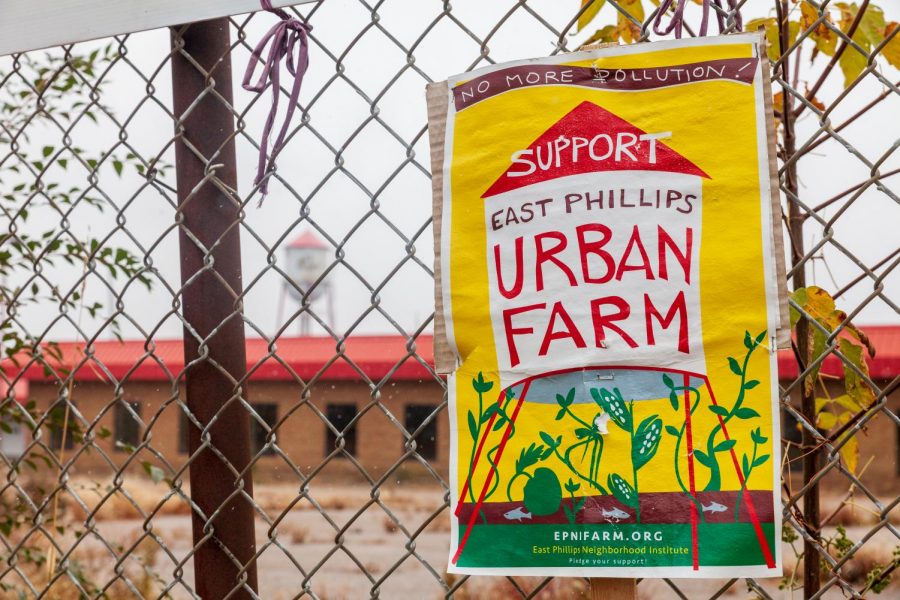The Minneapolis City Council voted 7-6 on Thursday to approve a contract to demolish the Roof Depot building in the East Phillips neighborhood, despite protests from residents and activists concerned about the project’s potential environmental impacts.
Demolition is tentatively scheduled to start next month, according to reporting from the Sahan Journal. Environmental and neighborhood activists have previously called for the site to be made into an urban farm and community hub.
The Council approved a $1.6 million contract to demolish the vacant building and turn the 7.6-acre site into a consolidated public works facility. Minneapolis has had plans to develop the site for more than 20 years, but high levels of toxic arsenic and further development on the site have left many residents fearful the site’s demolition could cause further environmental harm to the neighborhood.
The site previously housed a manufacturing plant that leaked arsenic into the surrounding soil and groundwater for decades, contaminating East Phillips and causing residents to suffer health problems such as asthma, according to a 2021 City Council analysis
Ward 9 Council Member Jason Chavez, who represents East Phillips and its surrounding neighborhoods, voted against the contract. He said his family grew up in East Phillips, where it was known that the soil contaminated vegetables residents ate, and could not support the project due to the potential health problems residents would suffer due to the project’s pollution.
“I was born and raised in East Phillips, which is why I’m very protective of this community,” Chavez said.
Chavez, along with Ward 12 Council Member Andrew Johnson, co-authored a compromise motion to reduce the project’s environmental impacts, which the Council unanimously approved. The compromise designates three acres of the site for community use, along with providing workforce training, prioritizing electric vehicles and planting trees at the site.
The East Phillips Neighborhood Institute (EPNI) must approve the compromise before it is adopted. EPNI has advocated to make the space an indoor urban farm in the neighborhood for nearly a decade.
“I hope that the community will be able to support this,” Council President Andrea Jenkins (Ward 8) said. “I recognize that some people don’t like compromise; however, that’s how the world works.”














